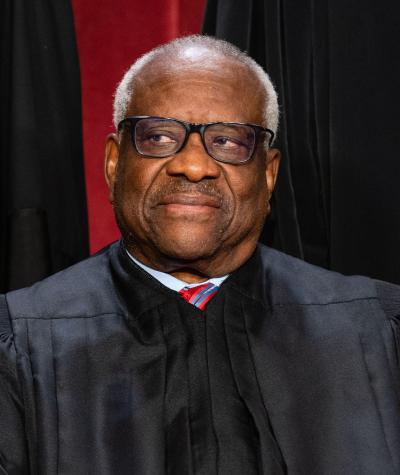Over a year after beginning its investigation into allegations that Supreme Court Justice Clarence Thomas violated financial disclosure laws, the financial disclosure committee of the Judicial Conference of the United States revealed on July 15 that it has again delayed making a final decision on the matter.
Fifteen months ago, CLC wrote a letter to the Judicial Conference requesting that it refer Justice Thomas to the U.S. Attorney General for willfully failing to report tens of thousands of dollars’ worth of travel gifts he received from wealthy donor Harlan Crow in violation of the Ethics in Government Act (EIGA).
A few months later, the Judicial Conference met and began reviewing the allegations, according to its September 2023 report.
However, the Judicial Conference provided virtually the exact same update months later when its report of the March 2024 meeting cryptically noted that “[t]he Committee also discussed the ongoing review of public written allegations of errors or omissions in a filer’s financial disclosure reports that were referred to it in 2023.”
As one of the few bodies that can enforce laws against Supreme Court justices, the Judicial Conference is in a unique position to improve public trust in the Supreme Court by showing the public that it takes ethics enforcement seriously.
There appears to be no compelling reason why the Committee on Financial Disclosure, more than a year after receiving CLC’s complaint, is unable to make a recommendation as to whether the Judicial Conference should refer the Justice Thomas matter to the Department of Justice.
The Judicial Conference is not responsible for proving that Justice Thomas did, in fact, violate the EIGA, but simply whether there is reason to believe that he did, a much lower burden.
At the very least, the Committee could have been transparent in its report, disclosing where it is in the investigation, to assure the public that it is, in fact, conducting an investigation.
The last time the financial disclosure committee said that it would look into a justice’s failure to comply with financial disclosure laws was 2011 and an investigation never actually took place. Two successive Committee chairs instead decided, behind closed doors, to end the inquiry at the outset without seeking any evidence.
The highest court in our nation should be held to the highest ethical standards, or at the very least, the same standards as the other branches of government and lower courts. A repeat of the sham investigation process that took place in 2011 would further erode faith in the Supreme Court, and our democratic institutions more broadly.
That is why the Judicial Conference’s near silence on the investigation is so concerning. The Judicial Conference must take its responsibility to uphold EIGA seriously and should take steps to prove that it is truly considering whether there is reasonable cause to believe that Justice Thomas violated the law.

